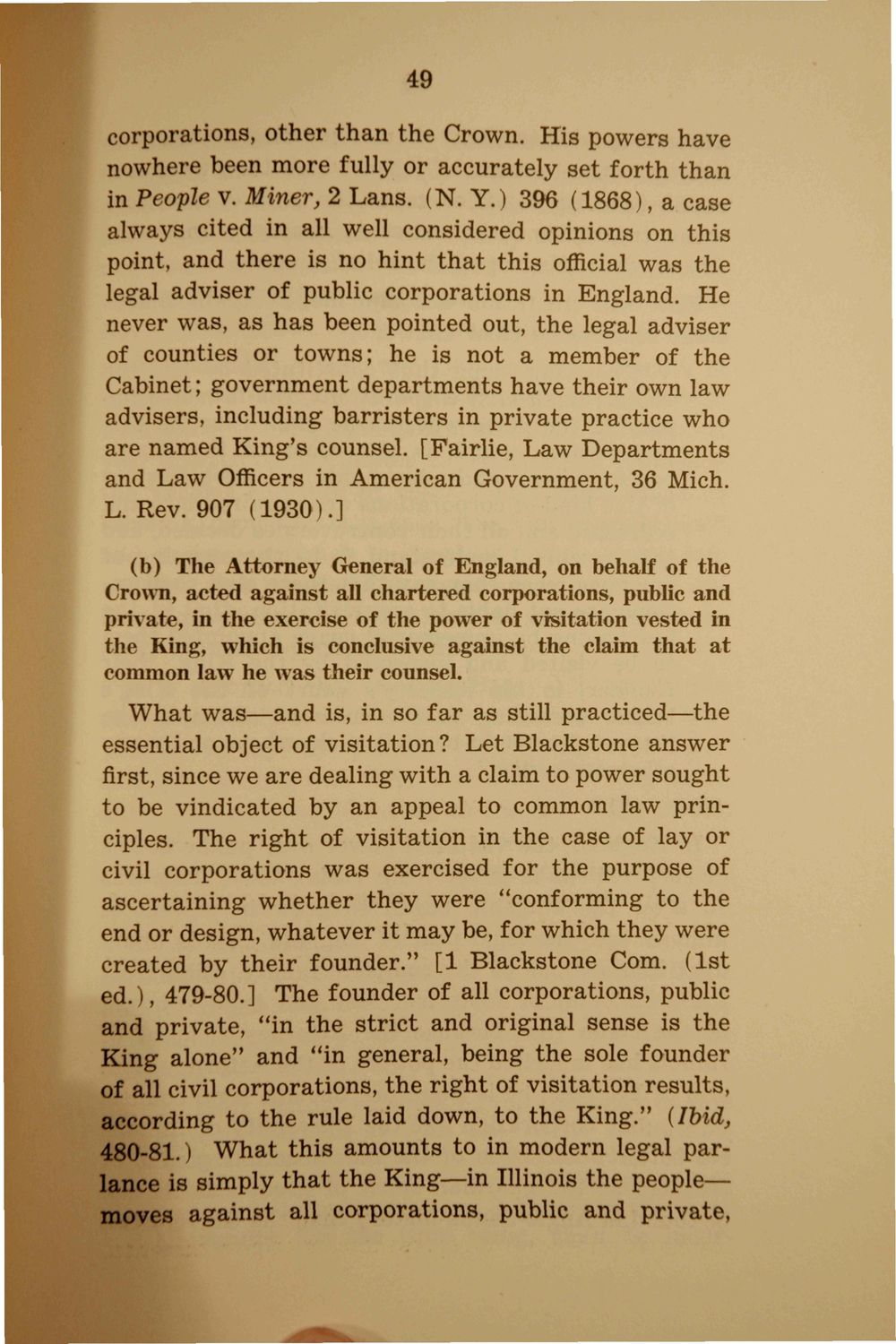| |
| |
Caption: Booklet - UI Charter of Freedom (1942)
This is a reduced-resolution page image for fast online browsing.

EXTRACTED TEXT FROM PAGE:
49 corporations, other than the Crown. His powers have more N. Y.) 396 always cited in all well considered opinions on this point, and there is no hint that this official was the legal adviser of public corporations in England. He never was, as has been pointed out, the legal adviser of counties or towns; he is not a member of the Cabinet; government departments have their own law advisers, including barristers in private practice who are named King's counsel. [Fairlie, Law Departments and Law Officers in American Government, 36 Mich. L. Rev. 907 (1930).] (b) The Attorney General of England, on behalf of the Crown, acted against all chartered corporations, public and private, in the exercise of the power of visitation vested in the King, which is conclusive against the claim that at common law he was their counsel. What was—and is, in so far as still practiced—the essential object of visitation? Let Blackstone answer first, since we are dealing with a claim to power sought to be vindicated by an appeal to common law principles. The right of visitation in the case of lay or civil corporations was exercised for the purpose of ascertaining whether they were "conforming to the end or design, whatever it may be, for which they were created by their founder." [1 Blackstone Com. (1st ed.), 479-80.] The founder of all corporations, public and private, "in the strict and original sense is the King alone" and "in general, being the sole founder of all civil corporations, the right of visitation results, according to the rule laid down, to the King." (Ibid, 480-81.) What this amounts to in modern legal parlance is simply that the King—in Illinois the people moves against all corporations, public and private.
| |